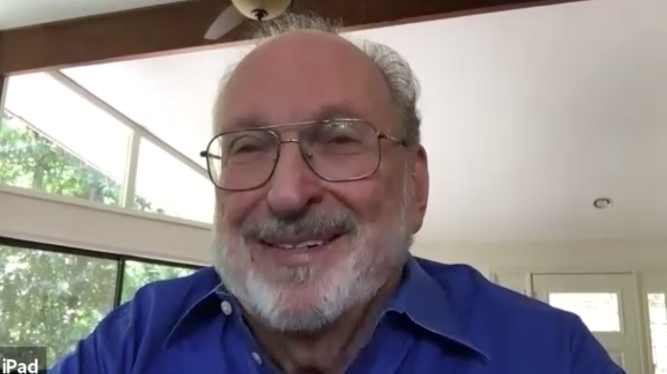Late night radio talker Jim Bohannon is no second-string Larry King
Had it not been for a misplaced wrench, long time radio talk show host Jim Bohannon might not have been broadcast icon Larry King's radio backup and eventual radio successor.
Bohannon shared the rest of the wrench story via Zoom at the most recent National Press Club Broadcast/Podcast Team monthly meeting, Thursday, May 6.
 Jim was co-anchoring news at Mutual Broadcasting System-owned WCFL in Chicago and was called upon as an emergency fill-in for King on a night when King had off and Mutual newsman Jim Slade, King's normal backup, was stuck at Cape Canaveral as there was a problem with a NASA launch because an engineer had left a wrench somewhere it should not have been inside a rocket. Brainstorming, the network brass settled on asking Bohannon to fill the slot.
Jim was co-anchoring news at Mutual Broadcasting System-owned WCFL in Chicago and was called upon as an emergency fill-in for King on a night when King had off and Mutual newsman Jim Slade, King's normal backup, was stuck at Cape Canaveral as there was a problem with a NASA launch because an engineer had left a wrench somewhere it should not have been inside a rocket. Brainstorming, the network brass settled on asking Bohannon to fill the slot.
After success that night, Bohannon was eventually transferred to Mutual headquarters in the D.C. area to serve as King's regular substitute. When Larry moved full time to TV, Bohannon got the 10 p.m. - 1 a.m. hosting duties. The program later moved to the Westwood One network. (The program is broadcast locally on WFED-AM 1500.)
Bohannon and his then wife Camille Bohannon had an earlier stint in Washington co-anchoring at all newsers WTOP and WRC.
When taking over for King, Bohannon said, "I decided I was not going to be a second-string Larry King, I was going to be Jim Bohannon. I followed the rule 'be yourself.'"
During the chat with Club team members, Jimbo reacted to team chairman Mark Hamrick's comment about "talk radio being the first iteration of social media" and how radio talk identified for the first time for many that "there's a fringe element out there."
Bohannon's on-air defense against such callers trying to monopolize the program is to "suffer folks" if their commentary is entertaining and he can joke with them," but if the caller can't entertain, "we move on." They don't have "an automatic right to spout on coast-to-coast radio," he said.
Responding to a comment that network syndicated programming is undermining local news coverage of radio, he said he believed that using syndicated programming for part of the broadcast day allowed station owners to put more of their economic resources instead into their own morning shows with local news coverage.
Asked about retirement, Jim joked that he will work "until I can't." He added,"I want my last words on this planet to be 'we'll be right back.'"
The Broadcast/Podcast Team will be right back with its next monthly meeting on Thursday, June 3, at noon sharp.
